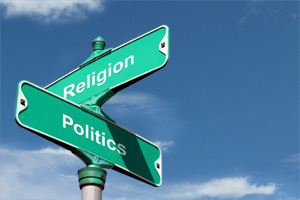Religious/Social Conservatism
 Religious/Social Conservatism reflects the student’s degree of opposition to such things as abortion, casual sex, and atheism, as well as an inclination to proselytize and to see God as a father-figure.
Religious/Social Conservatism reflects the student’s degree of opposition to such things as abortion, casual sex, and atheism, as well as an inclination to proselytize and to see God as a father-figure.
Students’ overall level of Religious/Social Conservatism declines during college, with greater numbers embracing a “pro-choice” position on abortion, fewer being opposed to casual sex, and fewer believing that people who don’t believe in God will be punished.
Students with the highest scores on Religious/Social Conservatism include Baptists, Mormons, and Nondenominational Christians. Those with the lowest scores include Buddhists, Hindus, Jews, Unitarian/Universalists, and students with no religious preference.
By far the strongest factor strengthening students’ Religious/Social Conservatism during college is Religious Engagement. Students will be less likely to show declines in Religious/Social Conservatism (and more likely to show increases) if they engage in prayer or religious singing/chanting or read sacred texts or other religious/spiritual works.
Other activities that promote Religious/Social Conservatism include joining a campus religious organization, or going on a religious mission trip.

